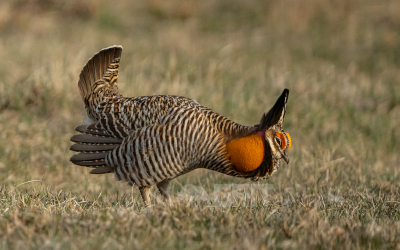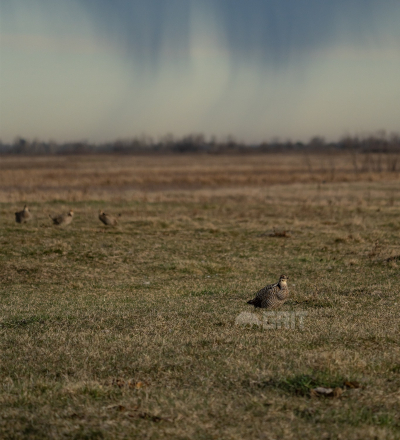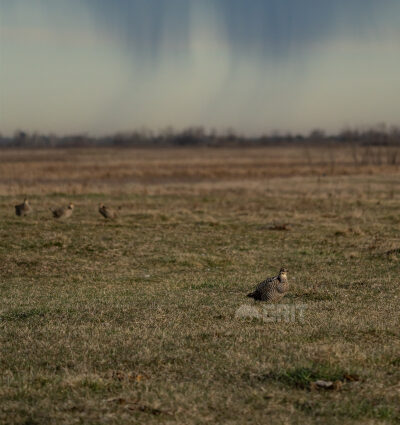 For the first time in its 75-year history, the Wisconsin Wildlife Federation (WWF) has chosen to participate as an intervener with the Wisconsin Public Service Commission (PSC) with the Vista Solar Sands project. In central Wisconsin, there is currently a proposed 8,500-acre solar project which would be the second largest solar array project in the county and the largest in the State of Wisconsin. WWF chose to intervene as the proposed project is in close proximity and in several areas’, borders the Buena Vista Wildlife Area. This unique public land was purchased through hunter and angler dollars, taxpayer dollars, as well as several non-profit organizations for public recreation and management for the State Threatened Greater Prairie Chicken. The 12,700-acre wildlife area is home to two-thirds of Wisconsin’s Greater Prairie Chicken population, which has been extensively managed for over the past 60 years. The proximity of this proposed solar project will have a negative affect on the Greater Prairie Chicken population as they are extremely sensitive to disturbances as well as overhead obstructions.
For the first time in its 75-year history, the Wisconsin Wildlife Federation (WWF) has chosen to participate as an intervener with the Wisconsin Public Service Commission (PSC) with the Vista Solar Sands project. In central Wisconsin, there is currently a proposed 8,500-acre solar project which would be the second largest solar array project in the county and the largest in the State of Wisconsin. WWF chose to intervene as the proposed project is in close proximity and in several areas’, borders the Buena Vista Wildlife Area. This unique public land was purchased through hunter and angler dollars, taxpayer dollars, as well as several non-profit organizations for public recreation and management for the State Threatened Greater Prairie Chicken. The 12,700-acre wildlife area is home to two-thirds of Wisconsin’s Greater Prairie Chicken population, which has been extensively managed for over the past 60 years. The proximity of this proposed solar project will have a negative affect on the Greater Prairie Chicken population as they are extremely sensitive to disturbances as well as overhead obstructions.
 Over the past months, WWF has been meeting weekly with a technical working group, most of which are WWF expert witnesses in this process, assembling testimony, rebuttals and surrebuttals. All of this in preparation for the party hearing with the Public Service Commission Administrative Law Judge and Vista Solar Sands on August 16th. Both the party hearing and public comment period has concluded and now the decision is in the hands of the Public Service Commission. We cannot thank everyone enough for their engagement in this process as it will set Statewide and potentially National precedence for wildlife and habitat considerations for wildlife responsible renewable energy siting.
Over the past months, WWF has been meeting weekly with a technical working group, most of which are WWF expert witnesses in this process, assembling testimony, rebuttals and surrebuttals. All of this in preparation for the party hearing with the Public Service Commission Administrative Law Judge and Vista Solar Sands on August 16th. Both the party hearing and public comment period has concluded and now the decision is in the hands of the Public Service Commission. We cannot thank everyone enough for their engagement in this process as it will set Statewide and potentially National precedence for wildlife and habitat considerations for wildlife responsible renewable energy siting.
A special thank you to the Wisconsin Society for Ornithology, Wisconsin’s Green Fire and Dane County Conservation League for their incredible contributions throughout this process to ensure sound and well balanced recommendations were being proposed.
Throughout this process, the Wisconsin Wildlife Federation has incurred legal expenses as well as poured a significant amount of staff and volunteer time and resources. If you support the work we have done balancing renewable energy development and localized wildlife impacts. Please consider donating to the Wisconsin Wildlife Federation to support our efforts.
By: Cody Kamrowski, Executive Director
